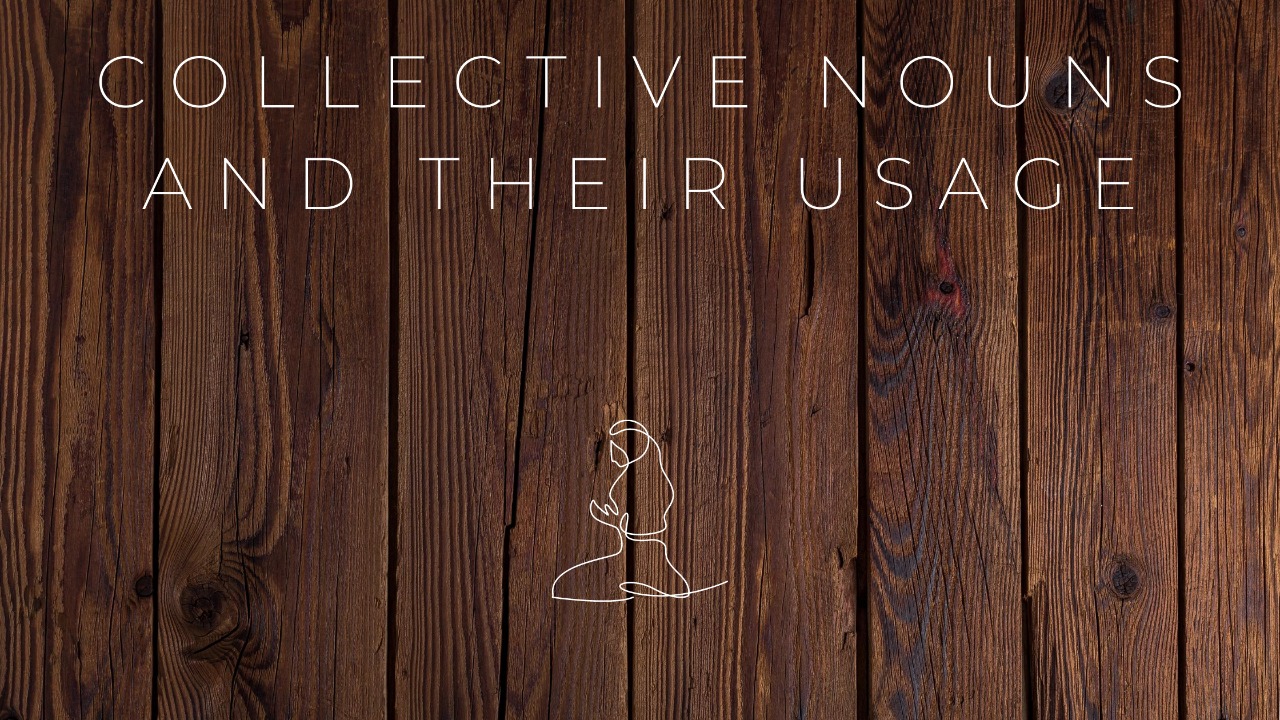Building Blocks of English: Collective Nouns
English is essential – that’s a fact we can’t get away from in the 21st century!
Whether you’re a student aspiring to go abroad, or a professional looking to tap new career opportunities, learning English becomes just short of a life-skill. Here’s where Hurray can help you – with 10 years of experience with English language training, we know just what you need!
And to give you a taste of what we offer – and to help you get started on the English learning, process – we’ve launched a series of blog posts, where we take up one component of language at a time, and unveil its nitty-gritties. Today, we’re talking about Collective nouns! Read on to learn more.
P.S. don’t forget to check out our other posts – on Adjectives, Articles, Prepositions, Collocations, and English Idioms.
Collective Nouns: What are they?
Let’s start with the basics – a definition.
When you have a number of things you want to describe or refer to at once, here’s where you use a collective noun. These things could be people, animals, things, ideas, concepts, activities, or anything else that can be multiple.
Remember: Collective nouns do not specify quantity – it refers to a group or collection of unspecified number, used in contexts where the number is not relevant.
Types of Collective nouns
Collective nouns can broadly be divided into two types – general nouns that may be used to refer to any collection of nouns, and specific nouns that may be used to refer to a collection of particular nouns only.
1.Collective nouns – general
You’ll recognise several of these, as you’ll already be using them in your everyday English speaking.
|
Collective noun |
Example |
|
Group |
Group of people, group of monkeys, group of trees |
|
Collection |
Collection of people, collection of stamps |
|
Bunch |
Bunch of grapes, bunch of junk, bunch of garbage |
|
List |
List of things, list of ideas, list of goods |
|
Mass |
Mass of people, mass of stuff |
|
Pile |
Pile of books, pile of rocks |
|
Heap |
Heap of cement, heap of feathers |
2. Collective nouns – specific
Here is where things get interesting – while you can easily use some general collective nouns for many of these common nouns, using the correct specific collective noun for a particular type of common noun, indicates good English skills.
These common nouns will typically be grouped together for a reason – such as a relationship, or similar function. It is rarely a random grouping.
|
Collective noun |
Example |
Explanation |
|
Class |
first grade class |
Refers to a group of people/things that are placed together for a purpose |
|
Family |
the Sharma family the Conde Nast family of magazines |
Versatile – could be used to refer to related people or to things that are related to each other |
|
Mob |
a mob of people |
Refers to a group of people that are unrelated, but are grouped together in a chaotic way |
|
Panel |
the panel of guest speakers |
Refers to a small group to which members are typically invited to join for a formal purpose |
|
Flock |
a flock of geese |
Refers to living creatures, most typically birds of the same kind |
|
Herd |
a herd of cows |
Refers to living creatures, most typically livestock or wild mammals of the same kind |
|
Fleet |
a fleet of airplanes a fleet of ships |
Refers to a group of a particular kind of transportation |
|
Pack |
a pack of cards a pack of wolves |
Versatile – could be used to refer to a collection of things, or to certain kinds of animals i.e. those that have strong group relations |
|
Set |
a set of knives a set of sheets |
Refers to things of a particular kind/function – particularly when they are being sold together |
3. Collective nouns – even more specific!
There are some collective nouns that are used specifically for certain nouns only. Several of these are quite unusual – and being able to use them could earn you brownie points!
|
Examples |
|
|
A murder of crows |
A school of fish |
|
A shrewdness of apes |
A band of men |
|
A caravan of camels |
A swarm of bees |
|
A clump of weeds |
A host of pigeons |
|
A brood of chicks |
A pride of lions |
How to use Collective nouns
Using collective nouns in a sentence can get rather tricky. These are the rules to know:
1. On its own vs with the common nouns
Typically, you will use the entire collective noun phrase i.e. collective noun + ‘of’ + common nouns, when referring to a collection of things – especially when you are talking about it for the first time.
For example : “I saw a herd of cows walking towards the meadow.”
But once you have established what nouns are being referred to, you can replace the collective noun phrase with just the collective noun.
For example: “A dog was trotting alongside the herd.”
In certain cases, you need not use a whole collective noun phrase at all – as the collective noun itself is enough.
For example: There’s no need to say, “The class of students went to the museum”. You can just say “The class went to the museum” – it is understood that ‘the class’ is referring to a collection of students.
2. Singular vs plural
A major confusion that tends to pop up is whether to use the singular or the plural when using a collective noun phrase.
The answer is: use the singular.
Remember, there is no specified number of things being referred to – here, all the things are collected to form a singular entity. For instance, in “a shoal of fish”, there may be several fishes in the group, but together they form a singular entity i.e. one shoal.
Examples:
-
Incorrect: The fleet of ships move toward the shore.
Correct: The fleet of ships moves toward the shore.
-
Incorrect: The list of instructions are on the desk.
Correct: The list of instructions is on the desk.
-
To remember, try this trick – keep only the collective noun and drop the common nouns it is referring to. When you do so, you’ll see that the singular works best.
The fleet move toward the shore vs The fleet moves toward the shore











Post Comments